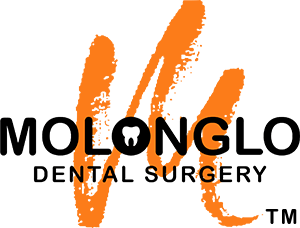Halitosis, commonly known as bad breath, is a medical issue that could be a sign of poor dental health habits and underlying health problems. The impact of bad breath is not limited to one’s social life; it could indicate the presence of periodontal diseases that could cause severe damage to the gums and jawbone.
In this blog, we investigate the link between poor dental health habits and bad breath, how food affects breath, what health problems are associated with bad breath, and what preventive measures people can take to avoid bad breath.
How Food Affects Breath?
The mouth is where food breakdown begins, and the absorption of foods into the bloodstream affects the air we exhale. Foods with strong odours like garlic and onions can cause bad breath that lingers until the foods have passed through the body.
Consuming cheese, pastrami, certain spices, orange juice, or soda can also cause bad breath. Dieters who don’t eat enough can also develop bad breath due to the breakdown of fat in their bodies.
Why Do Poor Habits Cause Bad Breath?
Failure to brush and floss daily promotes bacterial growth between teeth, around the gums, and on the tongue, causing bad breath. Poor dental hygiene, such as inflammation of the gums (gingivitis), poorly fitting dental appliances, or unclean dentures, could also cause bad breath. Smoking or chewing tobacco-based products could not only cause bad breath but also stain teeth, reduce taste sensation, and irritate gums.
What Health Problems Are Associated With Bad Breath?
Persistent bad breath or a bad taste in the mouth could indicate gum disease, caused by the buildup of plaque on teeth, which results in toxins that irritate the gums.
Long-term sinus infections, postnasal drip, diabetes, chronic acid reflux, and gastrointestinal issues could also cause bad breath. Dry mouth, a side effect of various medications, salivary gland problems, or continuous breathing through the mouth, could cause bad breath.
What Can I Do to Prevent Bad Breath?
Preventing bad breath starts with good oral hygiene practices like brushing teeth twice a day with fluoride toothpaste, flossing, replacing toothbrushes every 2 to 3 months or after an illness, and cleaning dentures properly.
Rinsing the mouth out with a mouthwash, drinking water to moisten the mouth, and scraping the tongue to remove the coating are effective measures to prevent bad breath.
Avoiding foods that sour breath and skipping after-dinner mints in favour of sugarless gum or candy is also recommended. Antiseptic mouthwash can help kill bacteria that cause bad breath and plaque that can lead to gum disease.
Warning sign of underlying health problems
Bad breath is a problem that affects individuals’ social lives and could be a warning sign of underlying health problems. Poor dental health habits, smoking or chewing tobacco, and certain foods can cause bad breath.
Preventing bad breath requires daily brushing and flossing, maintaining good oral hygiene, and avoiding foods that cause bad breath. A visit to the dentist is also necessary if bad breath persists, as it could indicate periodontal disease or other health problems.
Conclusion
There are many potential causes of bad breath, including tobacco use, food, dry mouth, poor dental hygiene, crash diets, drugs, mouth, nose, and throat conditions, foreign bodies, and diseases.
Simple home remedies and lifestyle changes, such as improved dental hygiene and quitting smoking, can often eliminate the issue. If bad breath persists, however, it is advisable to visit a doctor to check for underlying causes.
Bad breath, or halitosis, is a prevalent problem that can cause significant psychological distress. It is estimated that one in four people experience bad breath regularly.
Seek help for your halitosis problem with our Friendly Dentist in Molonglo Valley, Canberra. Contact Molonglo Dental Surgery at 02 6287 1222.



